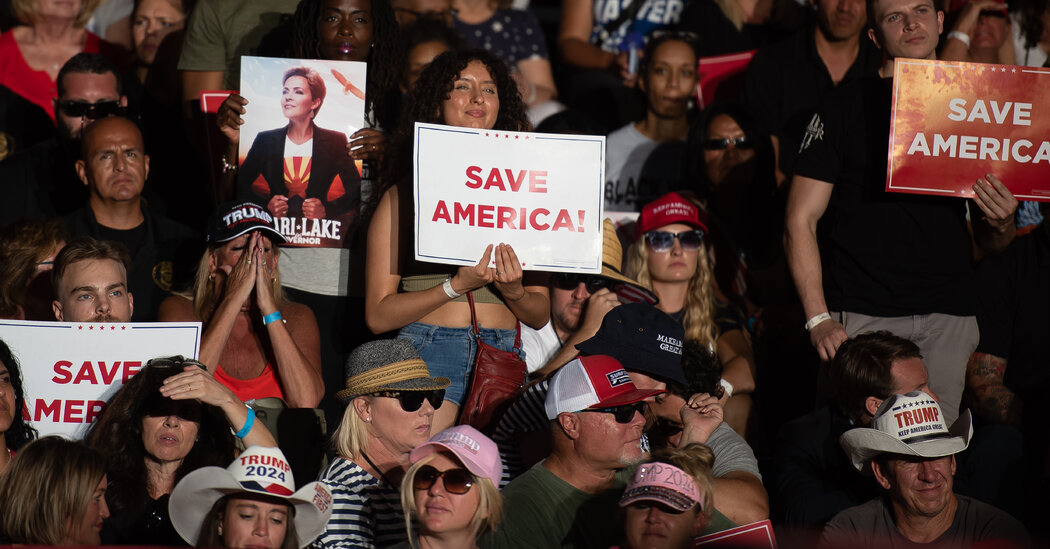When we started our national poll on democracy last week, David Leonhardt’s recent New York Times front-page story on threats to democracy was at the top of my mind. His article focused on two major issues: the election denial movement in the Republican Party, and undemocratic elements of American elected government like the Electoral College, gerrymandering and the Senate.
But when we got the results of our Times/Siena poll late last week, it quickly became clear these were not the threats on the minds of voters.
While 71 percent of registered voters agreed that democracy was “under threat,” only about 17 percent of voters described the threat in a way that squares with discussion in mainstream media and among experts — with a focus on Republicans, Donald J. Trump, political violence, election denial, authoritarianism, and so on.
Instead, most people described the threat to democracy in terms that would be very unfamiliar to someone concerned about election subversion or the Jan. 6 insurrection — and I’m not just talking about stop-the-steal adherents who think the last election already brought American democracy to an end.
The poll results help make sense of how so many voters can say democracy is under threat, and yet rank “threats to democracy” low on the list of challenges facing the country.
When respondents were asked to volunteer one or two words to summarize the current threat to democracy, government corruption was brought up most often — more than Mr. Trump and Republicans combined.
For some of these voters, the threat to democracy doesn’t seem to be about the risk of a total collapse of democratic institutions or a failed transition of power. Or they may not view the threat as an emergency or a crisis yet, like being on the brink of sustained political violence or authoritarianism.
Instead, they point most frequently to a longstanding concern about the basic functioning of a democratic system: whether government works on behalf of the people.
Many respondents volunteered exactly that kind of language. One said, “I don’t think they are honestly thinking about the people.” Another said politicians “forget about normal people.” Corruption, greed, power and money were familiar themes.
Overall, 68 percent of registered voters said the government “mainly works to benefit powerful elites” rather than “ordinary people.”
Another 8 percent of voters cited polarization as the major threat to democracy. Like corruption, polarization poses a threat to democracy but might not necessarily count as an imminent crisis.
And perhaps most surprising, many voters offered an answer that wasn’t easily categorized as a threat to democracy at all. Inflation, for instance, was cited by 3 percent of respondents — about the same as the share citing political extremists and violence. For perhaps as many as one-fifth of voters, the “threat to democracy” was little more than a repackaging of persistent issues like “open borders” and “race relations” or “capitalism” and “godlessness.”
The 17 percent of voters who cited something related to Mr. Trump and election denial seemed to elevate the issue of democracy the most: Overall, 19 percent of those respondents volunteered that the state of democracy was the most important problem facing the country — more than any other issue.
Among everyone else: Just 4 percent stated that concern as the No. 1 issue.
My colleagues have more on this story here.


